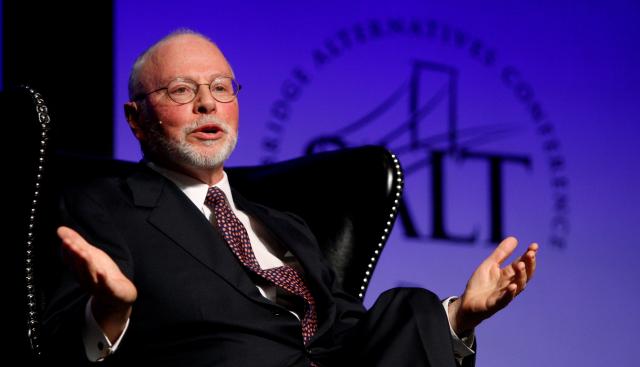Hedge fund managers are rarely the quiet, retiring type, but few are as boldly bare-knuckled as Paul Singer, the founder of Elliott Management.
Singer, who took home $400 million last year, makes his fortune through activist investing. While other investors are content to buy shares or bonds, and wait for them to accumulate value, Elliott Management, which oversees almost $33 billion, specializes in taking stakes in companies or institutions where it can shape the outcome. That can include agitating for changes in leadership, or spending years and million of dollars in court pursuing its interests.
Elliott Management is perhaps most notorious for its 15-year battle with the government of Argentina, whose bonds were owned by the hedge fund. When Argentine president Cristina Kirchner attempted to restructure the debt, Elliott—unlike most of the bonds’ owners—refused to accept a large loss on its investment. It successfully sued in US courts, and in pursuit of Argentine assets, convinced a court in Ghana to detain an Argentine naval training vessel, then docked outside Accra with a crew of 22o. After a change of its government, Argentina eventually settled and Singer’s fund received $2.4 billion, almost four times its initial investment. Kirchner, meanwhile, has been indicted for corruption.
Most recently, Elliott drew attention for its campaign against the management of Arconic, a manufacturer of auto and aerospace components. While waging a proxy battle to control the board, Elliott took aim at CEO Klaus Kleinfeld, calling him ineffective and a wasteful spender. After months of attacks, Kleinfeld responded in April with a bizarre letter that appeared to be an attempt to extort Singer by hinting at embarrassing behavior that took place at the 2006 World Cup in Germany (Kleinfeld enclosed a soccer ball with the letter). Once the letter was made public, Arconic’s board fired Kleinfeld and, not longer after, reached a settlement (paywall) that gave Elliott much of what it wanted.
Singer isn’t the first activist investor to play rough, but he may be the most successful. Elliott Management is wildly popular with investors, and it raised $5 billion in 24 hours when it opened a rare window to enter the fund in March.
The fund’s performance may re-write the rules of business, as other fund managers try to compete. “Because they’re so massively successful, their rapaciousness is now viewed in hindsight as success,” a former hedge fund executive said in an article about Elliott and its tactics in Institutional Investor, a trade publication. “Breaking the social norm of being pleasant in business is not a high cost to them.”
Elliott Management declined an opportunity to comment.
Of course, most of the fund’s conflicts are resolved without drama or headlines, but it could be a result of its reputation. Once its adversaries know the lengths Elliott will go to, the more willing they are to come to the negotiating table. “Sometimes you find that you’re knocking on an open door,” Singer said at an investor’s event June 7. “There are a lot of different reasons why a company that’s ready likes to see a resolution that can maximize value.”











